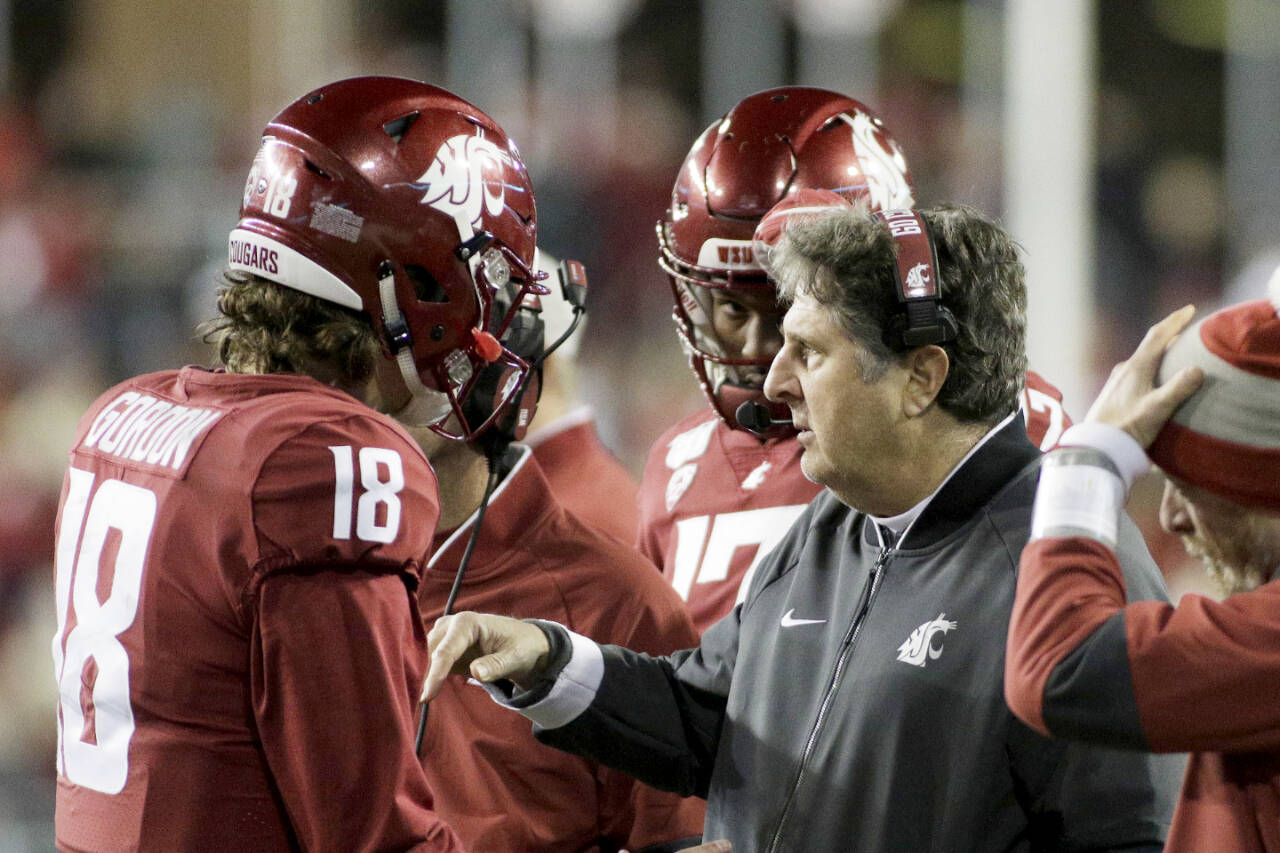Gruff, pioneering and unfiltered, Mike Leach was one of the most influential football coaches of this or any generation. His boundless curiosity and fascination for people, places and things made him famous beyond the field, a unique character in sports.
Leach, who was in his third year at Mississippi State after helping revolutionize the game of football from high school to the NFL with the Air Raid offense, died Monday night following complications from a heart condition, the school said Tuesday. He was 61.
Leach fell ill Sunday at his home in Starkville, Miss., near the university. He was treated at a local hospital before being airlifted to University of Mississippi Medical Center in Jackson, about 120 miles away.
“Mike was a giving and attentive husband, father and grandfather. He was able to participate in organ donation at UMMC as a final act of charity,” the family said in a statement issued by Mississippi State. “We are supported and uplifted by the outpouring of love and prayers from family, friends, Mississippi State University, the hospital staff, and football fans around the world. Thank you for sharing in the joy of our beloved husband and father’s life.”
In 21 seasons as a head coach at Texas Tech, Washington State and Mississippi State, Leach went 158-107. Mississippi State was his third head coaching stop on an unusual path in the profession.
Leach fought through a bout with pneumonia late in this season, coughing uncontrollably at times during news conferences, but seemed to be improving, according to those who worked with him.
News of him falling gravely ill swept through college football the past few days.
“It’s hard to put into words the impact that Mike Leach had on the players he coached, the game of football and me personally,” TCU coach Sonny Dykes posted on Twitter. “He was a unique personality and independent thinker and a great friend. No one had a greater influence on my life other than my father.”
In Starkville, under gray skies, the videoboard at Davis Wade Stadium showed an image of a smiling Leach and the message: “In loving memory.” Black ribbons were tied to the stadium gates and flowers were left there to honor the coach.
At Martin Stadium in Pullman, a similar tribute was on the videoboard above a snow-covered field.
Leach was known for his pass-happy offense, wide-ranging interests — he wrote a book about Native American leader Geronimo, had a passion for pirates and taught a class about insurgent warfare — and rambling, off-the-cuff news conferences.
His quarterbacks put up massive passing statistics, running a relatively simple offense called the Air Raid that he did not invent but certainly mastered.
Leach also had a penchant for butting heads with authority, and he wasn’t shy about criticizing players he felt were not playing with enough toughness.
A convergence of those traits cost Leach his first head coaching job. He went 84-43 with the Red Raiders, never having a losing season at the Big 12 school and reaching No. 2 in the country in 2008 with a team that went 11-2 and matched a school record for victories.
He was fired by Texas Tech in December 2009 after being accused of mistreating a player, Adam James — the son of former ESPN announcer and NFL player Craig James — who had suffered a concussion.
He refused to apologize for the conflict, and eventually sued Texas Tech for wrongful termination. The school was protected by state law, but Leach never stopped trying to fight that case. He also filed a lawsuit against ESPN and Craig James that was later dismissed.
Leach landed at Washington State in 2012. After three losing seasons, the Cougars soon looked very much like his Texas Tech teams. In 2018, with quarterback Gardner Minshew at the helm, Washington State went 11-2, setting a school record for victories, and was ranked as high as No. 7 in the country.
Leach moved to the SEC in 2020, taking over at Mississippi State.
This past season, Leach’s Mississippi State team finished 8-4, including a 24-22 victory Thanksgiving night over Mississippi in the intense rivalry known as the Egg Bowl. It was his final game.

